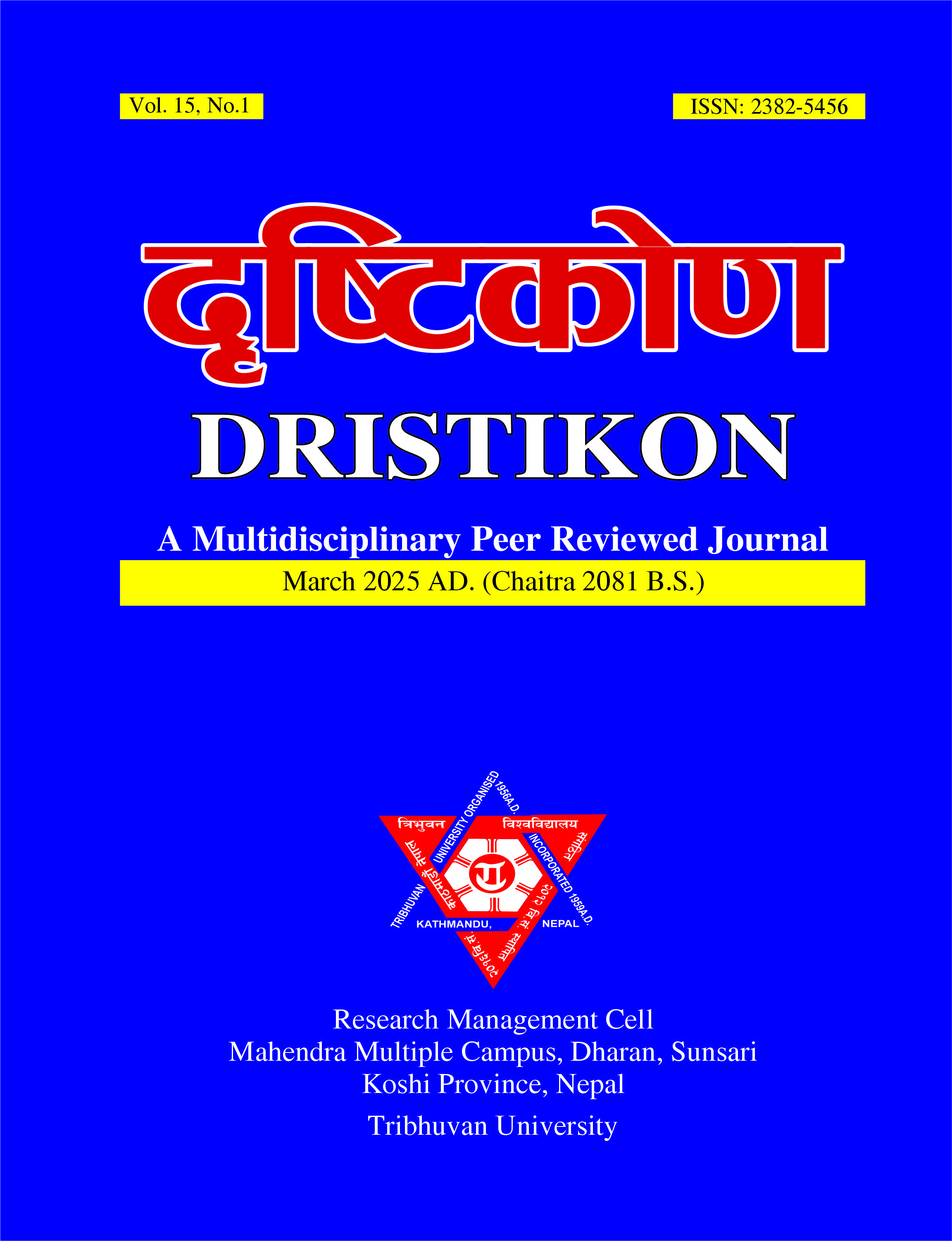Resistance to Ideology in Han Kang’s The Vegetarian
DOI:
https://doi.org/10.3126/dristikon.v15i1.77119Keywords:
ecology, femininity, resistance, vegetarianismAbstract
This article examines the 2024 Nobel Prize winner Han Kang’s novel The Vegetarian with a view to exploring it as a text that poses an ethical resistance to the long-standing convention of meat consumption in the Korean society. The rebellion that takes off from the familial, social and cultural location is spearheaded by the female protagonist Yeong-hye. This paper claims that the novel makes a staunch advocacy in favor of a morally-upright consumption behavior. Anchored to this statement, it argues that Yeong-hye’s all-out opposition to the entrenched norm of consuming meat in the non-vegetarian Korean society is driven by a reformist zeal and compassion for the welfare of social and animal worlds. By employing an eco-feminist perspective, the study discusses ideological resistance, femininity, and humanistic compassion, emphasizing empathy for all living beings, including animals. The paper situates The Vegetarian as a compelling critique of patriarchal and anthropocentric values. Yeong-hye’s resistance provokes opposition from her family, highlighting the tension between individual agency and oppressive cultural structures. Ultimately, it examines the interpersonal conflicts Yeong-hye faces within herself, between her husband and family members, and among the members of the society. This study implies the significance of personal awakening for the well-being of all the animals and choosing the independent path of life through autonomous decision.
Downloads
Downloads
Published
How to Cite
Issue
Section
License
© Research Management Cell, Mahendra Multiple Campus, Dharan

